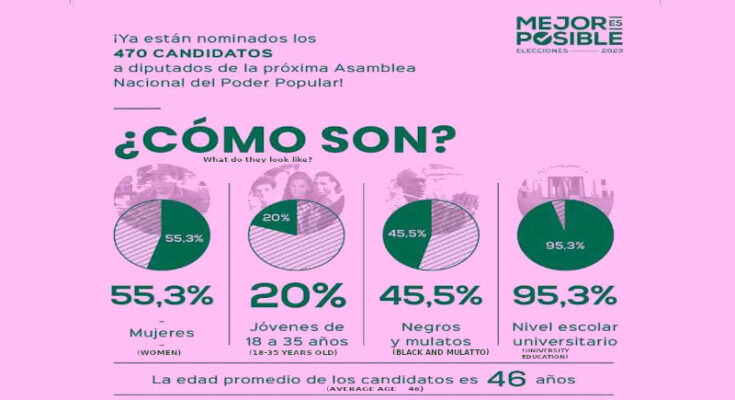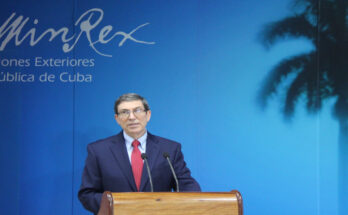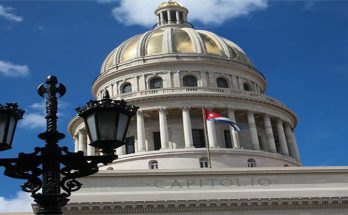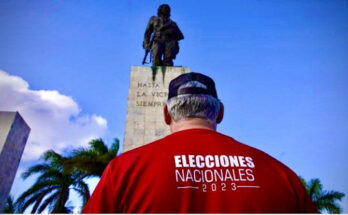The Cuban Parliament, the country’s highest political body, for a five-year term, will made up by the 470 deputies who will be elected on March 26. These national elections will see record participation of young, black and women candidates.
Different from capitalist countries, the election campaigns on the island are not in the form of propaganda, as in capitalist countries. The candidates visit neighborhoods, workplaces, and student centers, where assemblies are called and organized for an exchange with the population. In these public meetings, the candidates for the Cuban Parliament talk to the voters and listen to their concerns, questions, complaints and proposals.
One fifth of all candidates are young people between the ages of 18 and 35. This represents an increase compared to the current legislature.
More than half of the candidates are women. The world average for women in national government, according to the World Economic Forum, is only 26%. Rwanda, with 61% of the Parliament composed of women, has the highest rate of female participation.
At the same time, progress could also be made on the racial issue. While in the previous legislature 40% of its members were black, this number has increased to 45% in the current candidates.
Unlike multi-party political systems, candidates for the Cuban legislature are not elected through competition between different political parties. But, contrary to what is often believed, it is not the Cuban Communist Party that chooses the candidates for the Assembly either. Rather, the candidacies are chosen by “candidacy committees.”
The candidacy committees are made up of representatives of the leaderships of different sectoral and union spaces, which in turn are made up of the Federation of University Students, the Workers’ Central Union of Cuba, the National Association of Small Farmers, the Federation of High School Students, the Federation of Cuban Women, and the Committees in Defense of the Revolution. These committees propose different candidates who will be voted on in the elections.
The elected representatives are not paid a salary higher than that of the average worker. Likewise, officials are required by law to be accountable to their constituents and their mandate can be revoked at any time.
In the midst of this unfavorable situation, with respect for the democratic model, the Cuban leadership continued the election process in the corresponding periods and called for general elections to ratify or renew the current Parliament and the structures elected within that body.
Despite the media war unleashed against the Cuban National Elections, the process has been finished without any interference, and everything is ready for voting on March 26, and electing the members of the Cuban Parliament.




